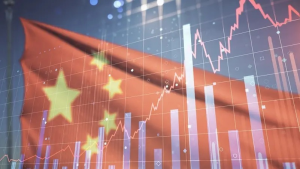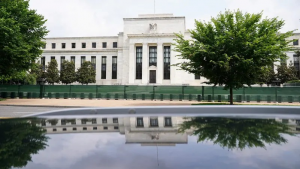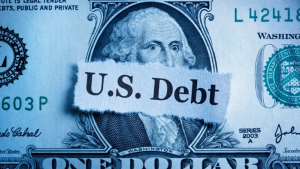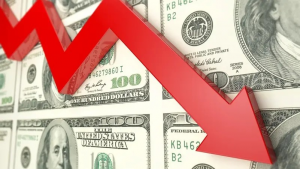Concerns have risen around the state of the U.S. economy in recent weeks, particularly as investors attempt to gauge the relative impact of President Donald Trump’s tariff policies on growth.
Trump has introduced a raft of trade actions since beginning his second term in the White House in late January, slapping -- and then delaying -- levies on most goods from traditional U.S. allies Canada and Mexico. Imports from China have also been hit with fresh surcharges, while the European Union has been singled out by Trump for perceived unfair trading practices.
Tariffs have also been floated on materials like aluminum and steel, and Trump has ordered his staff to investigate possible sweeping reciprocal levies.
Uncertainty has subsequently become a ubiquitous word among investors, as economists warn that Trump’s drive to upend global trade could also refuel inflationary pressures and weigh on growth.
The Federal Reserve has pushed pause on a policy easing cycle due to the murky outlook, saying it will take a wait-and-see approach to any future potential borrowing cost reductions, while the European Central Bank this week ratcheted down its growth expectations in the face of possible economic upheaval.
Fears over the implications of Trump tariffs have started to pop up in economic data, with consumer spending sliding and sentiment among U.S. shoppers falling to a 15-month low. This week, fresh figures showed that U.S. factory activity grew at a relatively stable pace in February, but prices paid spiked and new orders contracted.
Against this backdrop, the overall economy may be on track to shrink in the first quarter at the fastest pace since the COVID-19 pandemic lockdown, according to a measure from the Federal Reserve Bank of Atlanta.
In a note to clients, analysts at Academy Securities that while it remains difficult to assess what Trump’s barrage of tariff proposals will do, the Atlanta Fed report could be a reflection of "preemptive reaction" by businesses around the world to potential U.S. levies.
"Some of this is likely to reverse," the analysts added. However, they warned the longer companies attempt to anticipate policy changes, the more damage could be wrought on the wider economy.
"Undoing" the impact of such changes in company behavior may prove to be "more difficult" as a result, the analysts flagged.
Still, Fed Chair Jerome Powell said on Friday that the U.S. economy "continues to be in a good place," highlighted by ongoing, albeit choppy, progress on cooling inflation and persistent job gains. A closely-watched employment report showed that the economy added 151,000 jobs in February, while Powell said that average job growth has been a "solid" 191,000 per month since September.
Powell reiterated that the Fed, which is next due to announce a key monetary policy decision later this month, is in no rush to resume rate cuts, flagging that the "likely effects" of Trump’s trade policy changes "remains high













